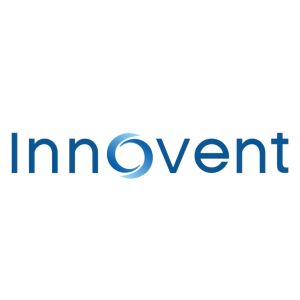Innovent released the results of two clinical studies of IBI311 (an anti-IGF-1R monoclonal antibody) in oral presentations at the Asia-Pacific Academy of Ophthalmology Congress and International Congress of Endocrinology 2024
ROCKVILLIE, Md. and
A Phase I Study of IBI311 (Anti-IGF-1R Monoclonal Antibody) in Chinese Healthy Volunteers
Abstract No.: 200683
The oral presentation at the 39th APAO annual meeting was based on a single dose escalation Phase 1 clinical study (NCT05480597) to evaluate the safety and tolerability of a single intravenous infusion of IBI311 in Chinese healthy volunteers. The primary endpoint of the study was safety variables, and secondary endpoints included pharmacokinetic (PK) parameters and immunogenicity results. The results showed that IBI311 was safe and well tolerated, with the most common treatment-emergent AEs being Grade 1 or 2, transient, and most resolving without treatment. All IBI311 dose groups were tested negative for anti-drug antibodies during the study. These indicated that a single intravenous administration of IBI311 at various dose levels in healthy subjects is safe and well tolerated, and the PK profile supports dose selection for subsequent clinical development.
A Phase II Study of IBI311 for the Treatment of Thyroid Eye Disease
Abstract No.: # 792
The oral presentation at the 21st International Congress of Endocrinology was based on a multicenter, randomized, double-masked, placebo-controlled Phase II study (NCT05795621) to evaluate the efficacy and safety of IBI311 in subjects with moderately to severely active TED. A total of 33 eligible subjects were randomized in a 2: 1 ratio to receive either IBI311 or placebo. The primary endpoint was the proptosis response rate at Week 12 of the study eye (defined as the percentage of subjects with a reduction in proptosis of ≥2 mm from baseline in the study eye without deterioration ≥ 2 mm increase of proptosis in the fellow eye). After 12 weeks, all subjects received IBI311 until Week 21. The results of the study showed:
- The primary endpoint was achieved: at Week 12, the proptosis responder rate in the study eye was significantly higher in the IBI311 group than in the placebo group (
59.1% vs18.2% , OR=11. 55, P=0. 0309). - With continued treatment and follow-up to week 24, the IBI311 treatment group achieved up to
72.7% proptosis responder rate, 3.37 mm reduction in proptosis from baseline,88.2% diplopia responder rate (defined as diplopia improvement ≥ grade 1). - Safety: The overall safety profile of IBI311 was favorable, with the majority of AE being mild or moderate in severity, and no treatment-emergent AE leading to drug discontinuation/interruption in the IBI311 group.
These results suggested that IBI311 significantly improves the proptosis in patients with TED in 12 weeks of treatment, and can lead to clinical benefits such as further improvement of proptosis and improvement of diplopia after continuation of treatment, with a favorable safety profile.
Professor Xianqun Fan, the leading principal investigator of the study, the Academician of the Chinese Academy of Engineering and professor of ophthalmology at the Ninth People's Hospital Affiliated to Shanghai Jiao Tong University School of Medicine, stated, " As an organ-specific autoimmune disease closely related to thyroid disease, TED is one of the most common orbital diseases in adults, and seriously affects the visual function and appearance of patients. At present, there is no targeted therapy approved for the treatment of thyroid ophthalmopathy in
Dr. Lei Qian, Vice President of Clinical Development of Innovent, stated, "We are pleased to present the clinical development progress of IBI311 in thyroid eye disease at APAO Congress and ICE. This is another achievement of in-depth collaboration between Innovent and academia. It is also a prestigious recognition by the international ophthalmology and endocrinology academic community to Innovent IBI311's progress in the treatment of thyroid eye disease. We look forward to the approval of IBI311in the near future, providing treatments to TED patients. We will continue to make efforts to facilitate people's pursuit of a happy life and serve more patients."
About Thyroid Eye Disease (TED)
TED, the most common orbit-related disease in adults, is an autoimmune disease involving ocular tissues and usually associated with Graves' disease (GD) and is the most common orbit-related disease in adults. TED occurs in approximately 25 to
The annual incidence of TED is estimated to be 16/100,000 in women and 2.9/100,000 in men[2],and the estimated prevalence of clinically relevant TED ranges from
The natural history of TED is classified into active and inactive phases[6]. The most common symptoms are dry eye, ocular gritty, photophobia, lacrimation, diplopia, and pressure behind the eye, while typical signs include upper eyelid retraction, eyelid edema, periorbital and conjunctival edema, and proptosis. TED is usually mild to moderate, and about 3–
Currently, the first-line treatment for moderately severe active TED is intravenous glucocorticoid therapy, which suffers from unsatisfactory improvement of proptosis and systemic side effects. The second-line treatment includes other immunomodulators, which also have risks related to unclear improvement of proptosis and treatment.
Teprotumumab, Tocilizumab and Rituximab are recommended by the Chinese Clinical Diagnosis and Treatment Guidelines for Thyroid Eye Disease (2022)[8], the European Group on Graves' orbitopathy (EUGOGO)[9] and the consensus on thyroid eye disease of the American Thyroid Society and the European Thyroid Society[10] as the second-line treatment options for moderate to severe active TED. Teprotumumab targeting IGF-1R is recommended as first-line therapy for patients with clinically significant proptosis.
About IBI311
IBI311 is a recombinant anti-IGF-1R antibody developed by Innovent Biopharmaceuticals for the treatment of TED. IGF-1R, a transmembrane tyrosine kinase receptor that plays a role in development, metabolism, and immune regulation, is overexpressed in OFs, B, and T cells of TED patients[11]. IBI311 can bind IGF-1R, block IGF-1R signaling pathway activation mediated by IGF-1 and other related ligands or agonistic antibodies, thus reducing the expression of downstream inflammatory factors, inhibiting the synthesis of hyaluronic acid and other glycosaminoglycan caused by OFs activation, as well as related inflammatory reactions including tissue congestion and edema. IBI311 can inhibit adipocyte cellularization of OFs, thereby reducing the disease activity of patients with TED and improving proptosis, diplopia, ocular congestion and edema and other symptoms and signs.
About Innovent
Innovent is a leading biopharmaceutical company founded in 2011 with the mission to provide high-quality biologics that are affordable to all. The company discovers, develops, manufactures and commercializes innovative medicines that treat some of the most intractable illnesses. Its pioneering therapies to treat cancer, cardiovascular and metabolic, autoimmune and eye diseases. Innovent has 10 products in the market, 3 new drug applications under the NMPA review, 4 assets in Phase III or pivotal clinical trials and 19 more molecules in early clinical stage. Innovent partners with over 30 global healthcare leaders, including Eli Lilly, Roche, Sanofi, Adimab, Incyte and MD Anderson Cancer Center.
Guided by the motto, "Start with Integrity, Succeed through Action," Innovent maintains the highest standard of industry practices and works collaboratively to advance the biopharmaceutical industry so that first-rate pharmaceutical drugs can become widely accessible. For more information, visit www.innoventbio.com, or follow Innovent on Facebook and LinkedIn.
Statement: Innovent does not recommend the use of any unapproved drug (s)/indication (s).
Forward-looking statement
This news release may contain certain forward-looking statements that are, by their nature, subject to significant risks and uncertainties. The words "anticipate", "believe", "estimate", "expect", "intend" and similar expressions, as they relate to Innovent Biologics ("Innovent"), are intended to identify certain of such forward-looking statements. The Company does not intend to update these forward-looking statements regularly.
These forward-looking statements are based on the existing beliefs, assumptions, expectations, estimates, projections and understandings of the management of the Company with respect to future events at the time these statements are made. These statements are not a guarantee of future developments and are subject to risks, uncertainties and other factors, some of which are beyond the Company's control and are difficult to predict. Consequently, actual results may differ materially from information contained in the forward-looking statements as a result of future changes or developments in our business, the Company's competitive environment and political, economic, legal and social conditions.
The Company, the Directors and the employees of the Company assume (a) no obligation to correct or update the forward-looking statements contained in this site; and (b) no liability in the event that any of the forward-looking statements does not materialize or is otherwise inaccurate.
References:
1. Li Z, Cestari D M, Fortin E. Thyroid eye disease: what is new to know? Curr Opin Ophthalmol. 2018; 29 (6): 528-534. |
2. Bartley G. The epidemiological characteristics and clinical course of ophthalmology associated with autoimmune thyroid disease in Olmsted Country, |
3. Hiromatsu Y, Eguchi H, Tani J, Kasaoka M, Teshima Y. Graves' ophthalmopathy: epidemiology and natural history. Intern Med. 2014;53(5):353-60. |
4. Edsel I. Thyroid Associated Orbitopathy. Retrieved June 7, 2011, from Medscape Reference: http://emedicine.medscape.com/article/1218444-overview # a1http://emedicine.medscape.com/article/1218444-overview |
5. Ali F, Chorsiya A, Anjum V, Ali A. Teprotumumab (TEPEZZA): From the Discovery and Development of Medicines to USFDA Approvals for Active Thyroid Eye Disease (TED) Treatment. Int Ophthalmol. 2021; 41 (4): 1549-1561. |
6. Dolman P J. Evaluating Graves' orbitopathy. Best Pract Res Clin Endocrinol Metab. 2012; 26 (3): 229-248. |
7. Bahn R S. Graves' ophthalmopathy. N Engl J Med. 2010; 362 (8): 726-738. |
8. Bartalena L, Kahaly GJ, Baldeschi L, et al. The 2021 European Group on Graves' Orbitopathy (EUGOGO) clinical practice guidelines for the medical management of Graves' Orbitopathy. Eur J Endocrinol. 2021; 185 (4): G43-G67. |
9. Group of Oculoplastic and Orbital Diseases, Chinese Ophthalmology Branch, Chinese Medical Association; Group of Thyroid Diseases, Chinese Endocrinology Branch, Chinese Medical Association. Chinese Guidelines for the Diagnosis and Treatment of Thyroid Associated Ophthalmopathy (2022). Chinese Journal of Ophthalmology. 2022; 58 (9). |
10. Burch HB, et al. Management of Thyroid Eye Disease: a Consensus Statement by the American Thyroid Association and the European Thyroid Association. Eur Thyroid J. 2022; 11 (6): e220189. |
11. Douglas RS, Naik V, Hwang CJ, et al. B cells from patients with Graves' disease erase express the IGF-1 receptor: implications for disease pathogenesis. J Immunol 2008; 181: 5768-5774. |
SOURCE Innovent Biologics







